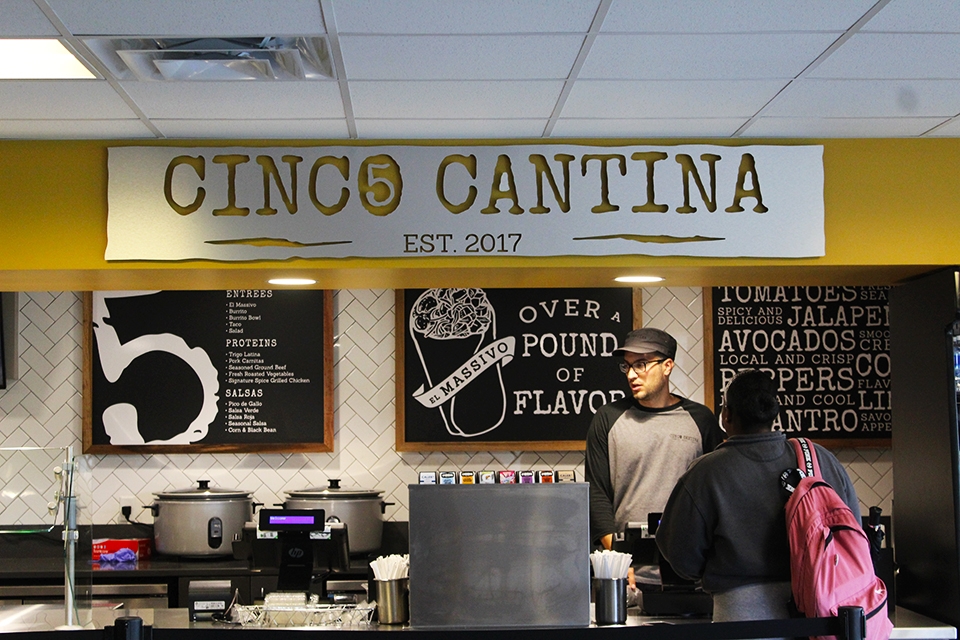10/18/2018
By Ollie Gratzinger | Opinions Editor
Over the summer, childrens’ retail giant Toys R Us announced that it would be permanently closing the doors of about 735 U.S. locations as a result of bankruptcy claims dating back to the previous September. We packed up our childhood memories, watched as storefronts became vacant lots and bid farewell to Geoffrey the Giraffe. But now, the brand may be making a comeback, and the employees who’d lost their jobs — and have yet to receive promised severance pay — are far from thrilled.
According to the Washington Post, the hedge funds that own the branding for the company have decided against selling all of its assets, opting instead to hold onto brand names, web domains and Geoffrey the Giraffe himself. Further, an Oct. 6 tweet seems to foreshadow the return of the company with the hashtag “#Geoffreyisback,” going on to urge customers to “share some of your favorite memories and get ready to make a whole lot of new ones.”
All memories aside, more than 30,000 people — many of whom had been with the company for years — were laid off, and worker advocacy group Rise Up Retail estimates those employees are owed somewhere around $75 million in severance pay.
The company, according to the Wall Street Journal, has only $20 million set aside in a fund reserved for this purpose, and most employees report that they haven’t seen a penny yet despite being promised two weeks of severance for their first year on the job and one week of pay for every two years after that.
While many workers would be open to returning to their jobs, should Toys R Us be brought back from the edge of its corporate death, they fear that the owners will overlook seasoned employees and search instead for low-wage labor. After all, the sole purpose of a hedge fund is to increase profit, and severance pay isn’t always protected when a company goes bankrupt.
Perhaps by eliminating the cost of paying workers what they’re owed, the brand expects to afford its very public comeback and revival, and the promises made to once-loyal employees are pushed to the back burner once again. Coming at a time during which large retailers — Amazon, for example — have been under harsh scrutiny for mistreatment of employees, the Toys R Us fiasco highlights yet another absence of ethics under capitalism.
It almost feels as though the whole thing was one big PR stunt, done to reawaken a deeply-buried sense of nostalgia and fondness in the heart of consumers. Because of the pathos associated with sweet childhood memories of the store, it’s easy to see Toys R Us as a benign and gentle corporation. But it’s also important to remember that there really is no such thing. Like any other company, Toys R Us and its investors are concerned only with making money by any means necessary, and no matter how much you spend, you can’t buy back memories.
By injecting itself back into the headlines, Toys R Us makes it harder for consumers to forget about it in the era of online shopping and Amazon Prime. Especially with the holidays coming up — a time during which retailers make up to 30 percent of their annual sales, according to the National Retail Foundation — this could, in theory, make its owners a whole lot of cash. For them, that’s what it’s all about.
Even if that isn’t the case, and even if the company doesn’t make its comeback in time for the Christmas rush, it doesn’t seem fair that investors can just decide to start over while so many people were left without work for so long.
NPR covered a protest in New York comprised of about 30 ex-employees of the company, many of whom made declarations such as “You left 33,000 people without jobs,” and “Whose Toys R Us? Our Toys R Us,” while touting their own mascot — a vulture.
One employee posted on Twitter, “Do I get severance pay for losing my job now that y’all [sic] have the money to stay open? Or do I get my job back?”
As of now, no one knows for sure.
On Oct. 16, Sen. Elizabeth Warren (D-MA) lashed out at the major firms that played a role in the company’s initial liquidation this past summer, urging them to contribute to a fund which would pay laid-off employees what they’re owed, and questioning why they chose to liquidate while there were other viable options. While two of the company’s owners, KKR and Bain Capital, have contributed $10 million a piece to the fund of $20 million set up to pay severance to laid off workers, CNN reports that none of the other four companies responded.
Fond memories of Toys R Us are not reason enough to support its return, especially considering the wrongs it committed against its employees. Despite what the company’s Twitter would have you believe, there is, in fact, a dark and stringently corporate side to the fluffy, light-hearted announcement of revival. More than 30,000 people have suffered for it, and that isn’t okay.




